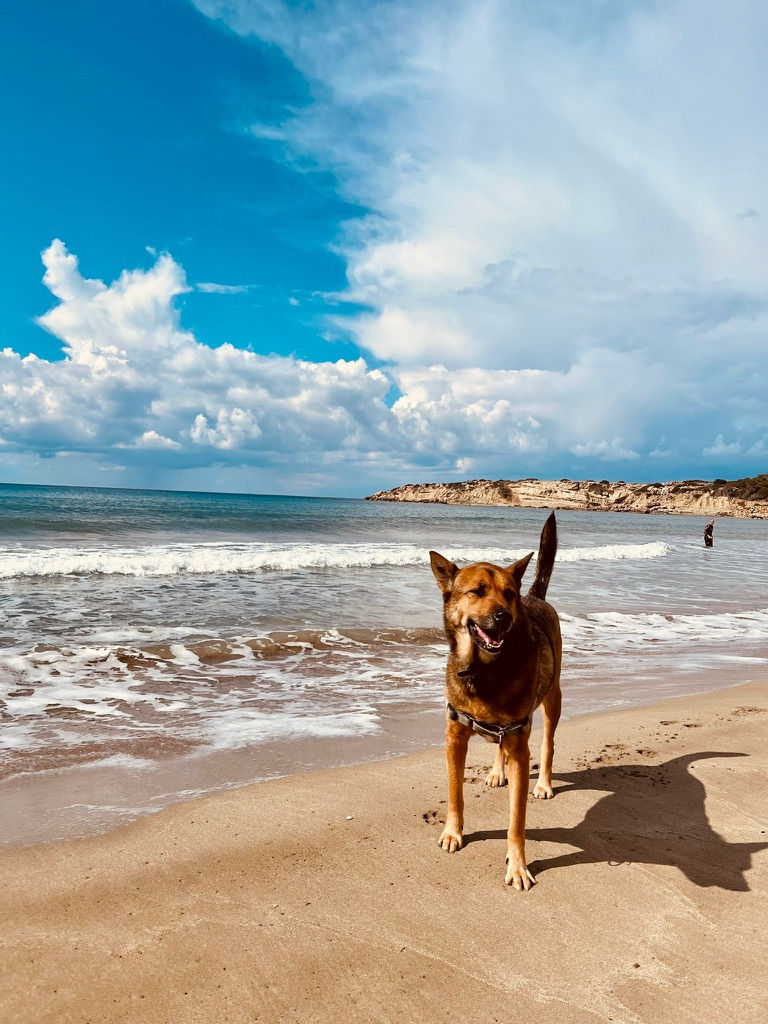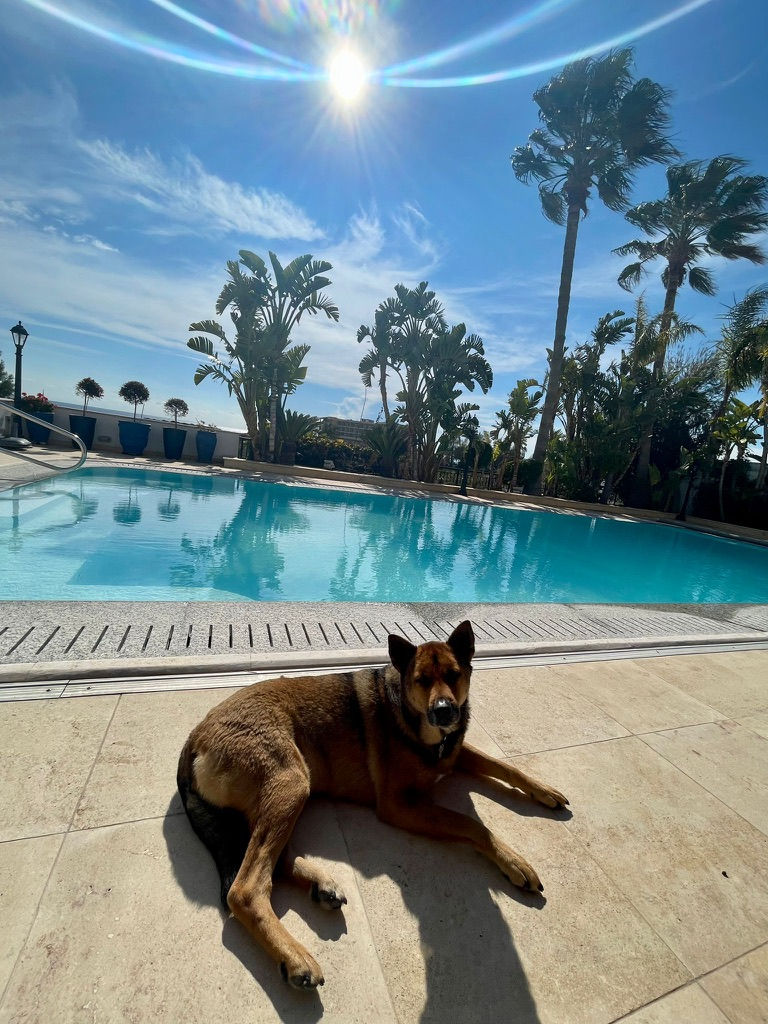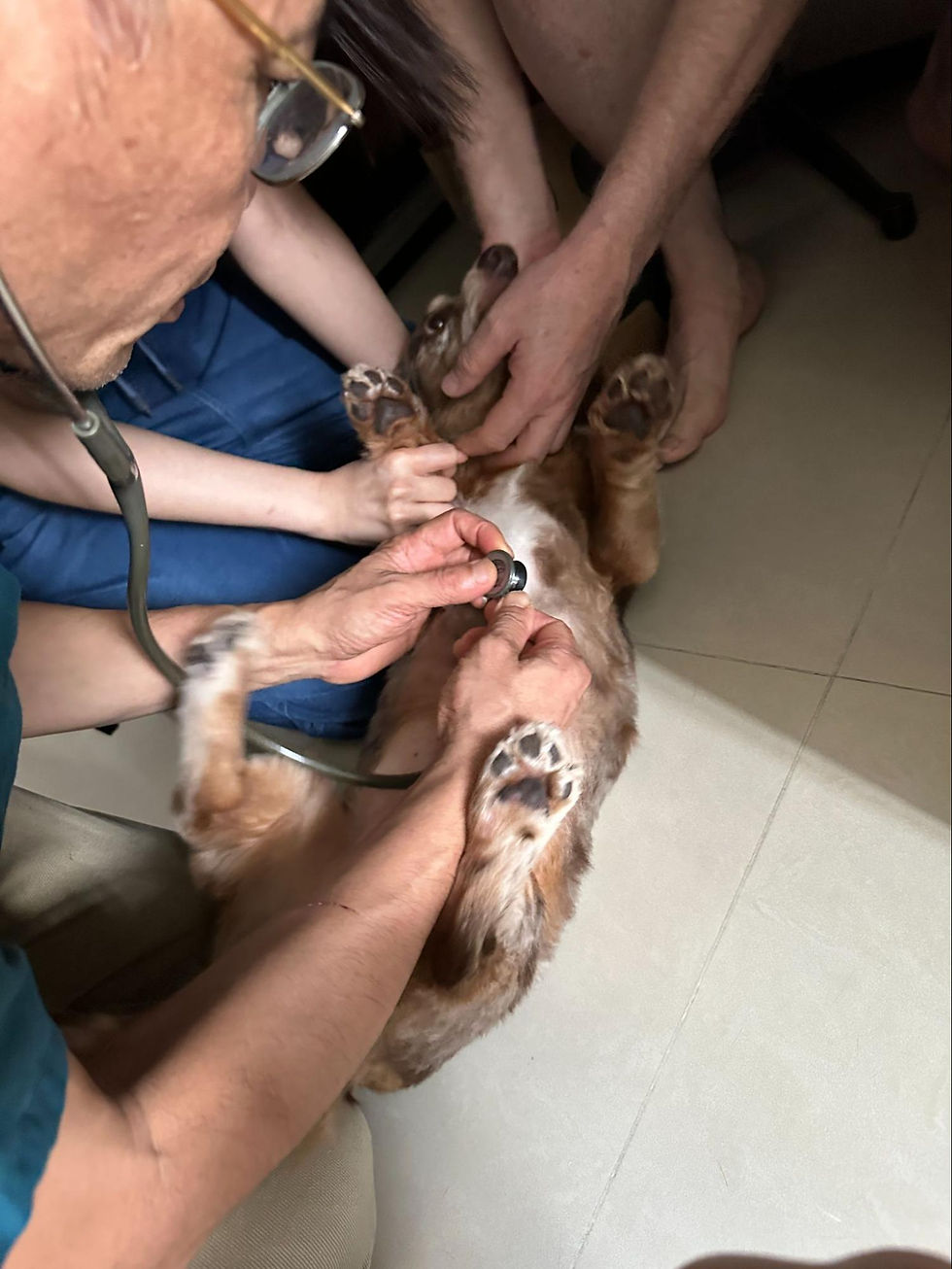Discover Tips for Taking Pets to Hawaii!
- Global Paws
- May 7, 2025
- 6 min read

Taking pets to Hawaii - Dreaming of soaking up the sun in Hawaii with your furry best friend? It is a pet-friendly paradise with some strict rules due to Hawaii’s rabies-free status. Don't worry, though!
This guide will help you navigate the requirements for taking your pets to Hawaii. Let’s take the plunge!
Hawaii’s Pet Entry Regulations
Hawaii's pet regulations are designed to keep the islands safe and rabies-free. The state's strict rules subsequently protect the state’s environment and wildlife from diseases that pets could easily bring in.
And we understand; the last thing you want when taking pets to Hawaii is to run into complications. Let’s break it down!
Why Hawaii Has Strict Pet Regulations
Hawaii’s special status as a rabies-free state means its government takes extra precautions regarding pet entry. These rules are essential in maintaining local animals' health while preventing diseases from spreading further.
The Importance of Compliance
Trust us, skipping a step can lead to delays, extended quarantine, or even your pet getting sent back!
Following the rules will guarantee you and your pet a smooth experience with no surprises, especially if you want to avoid unnecessary quarantine or unexpected costs for your pet's travel.
Truthfully, there are a few methods to bring your pet to Hawaii. Today’s guidelines, Global Paws chooses to focus on the Direct Airport Release for arrivals in Honolulu.
Please note that the entry requirements for travelling to neighbouring islands vary slightly from Hawaii!
Preparing Your Pet for Travel to Hawaii

Since you independently researched by reading this article, you likely know that preparation for your pet will require more than packing a leash and treats.
Here is a revised checklist of what you need to do before taking pets to Hawaii:
1. Find a Licensed Veterinarian
Before starting any pet export procedures, ensure that your veterinarian is accredited by the appropriate governing authority in your pet's country of origin. Your veterinarian should work for or be licensed by the official agency responsible for managing the movement of live animals.
If import regulations are not met, your pet can be denied entry, required to undergo quarantine, or sent back to the country of origin.
2. Microchipping
If you plan to bring your pet to Hawaii, don’t forget the microchip! Your pet must have an ISO 11784-compliant, 15-digit, non-encrypted microchip implanted before the rabies titer test (FAVN).
Accepted chips include Avid, Home Again, or any 15-digit ISO microchip. Your veterinarian should handle the implantation, and they will provide documentation for you to register the chip.
To avoid any delays, scan your microchip at each vet appointment and include the microchip number in all your import paperwork.
Important note!
If the microchip is unreadable when you arrive, your pet will not qualify for Direct Airport Release and will be subject to 120 days of quarantine.
3. Rabies Vaccination
Hawaii wants to keep pets rabies-free, which means they require two rabies vaccinations in your pet’s lifetime.
Here is the deal:
The first one needs to be at least 12 months before you arrive.
The second must be given within a year of the first.
The two vaccinations should be spaced at least 30 days apart and within the validity period of the first shot. And don’t forget, your most recent rabies shot needs to happen at least 30 days before you land in Hawaii.
Once you have those shots lined up, you must mail the original signed certificates to Hawaii before your pet arrives.
General Vaccinations for Your Pet
While not a must for travel, keeping your pet’s general vaccinations up to date is undoubtedly advised. These vaccinations will be required, especially if your pet will be boarding before or after their trip.
For Dogs:
DHPP (Distemper, Hepatitis, Parainfluenza, Parvovirus)
Bordetella (Kennel Cough)
Leptospirosis
CIV (Canine Influenza Virus)
For Cats:
FVRCP (Feline Viral Rhinotracheitis, Calicivirus, Panleukopenia)
FeLV (Feline Leukemia Virus) - required for some boarding facilities
Keeping these vaccinations up to date means your pet will be all set for their travels!
4. Rabies Titer (Serology) Test

A rabies titer test, or rabies antibody test, checks how well your pet's rabies vaccination worked by measuring the level of rabies antibodies in their blood. The Fluorescent Antibody Virus Neutralization (FAVN) test is the go-to for taking pets to Hawaii.
This test should be done 30 days after your pet's rabies vaccine, but no later than 36 months before their trip to Hawaii. Ensure your pet has a microchip before the test, and include that number on the report!
You must also send the blood sample to an approved lab, such as Auburn University, Kansas State University, or the DOD Food Analysis and Diagnostic Lab in Texas.
After that, the results will go directly to Hawaii (with an electronic copy to your vet). A passing score is ≥ 0.5 IU/ml. An extra note from us: If your pet arrives too soon, it will need to be quarantined, so plan carefully!
5. Health Certificate
Taking pets to Hawaii requires a health certificate dated within 14 days before arrival. To be safe, book that licensed vet appointment within 10 days, as many airlines require. Your certificate also needs your pet's microchip number, rabies vaccination information, and tick treatment details. The vet will usually fill out the APHIS 7001 form.
When you arrive in Hawaii, keep the original signed certificate with your pet for the inspector. Don’t forget to keep a copy for yourself, too!
6. Import Form
To bring your pet to Hawaii, complete the Dog & Cat Import Form AQS-279 and send it with the following at least 10 days before arrival:
Completed AQS-279 form (one per pet)
The last two Original Rabies Vaccination Certificates signed by a licensed vet, including vaccine details
Payment of $185 via cashier’s check or money order (payable to Department of Agriculture) with your pet's microchip number on the memo line
Mail these documents to:
Animal Quarantine Station 99-951 Halawa Valley Street Aiea, Hawaii 96701
Note: Only original documents are accepted!
7. External Parasite Treatment
Your pet must be treated for ticks within 14 days before arriving in Hawaii using a long-acting product like Frontline Plus. The treatment name and date must be listed on the health certificate, and it is a good idea to include a copy of the vet's invoice as proof.
Please note: Revolution® is NOT accepted as a treatment.
So, please make sure the product contains Fipronil or another equivalent long-acting solution that targets ticks.
8. Choosing a Suitable Pet Quarantine Option
When taking pets to Hawaii, there are two main quarantine options: the Direct Airport Release (DAR) program and the 5-Day-or-Less quarantine.
If your pet qualifies for DAR, they can be released straight from the airport. But if not, you may need to opt for the 5-Day-or-Less quarantine. The goal is to avoid a long wait and immediately get your pet to you.
For more complete information about pet quarantine in Hawaii, learn more here!
Successfully taking pets to Hawaii involves more than just packing your suitcase; every step is significant to ensuring your pet enjoys the journey as much as you do.
If you are feeling a bit overwhelmed, don’t worry! Global Paws is here to help. With over 20 years of experience in international pet travel, we specialise in making pet relocations smooth and stress-free.
As a member of the International Pet & Animal Transport Association (IPATA) and with our IATA Live Animals Regulations (LAR) certification, we have all the expertise you need to guarantee a seamless experience.
Contact us today and enjoy paradise with your furry friend!
About Global Paws:

Global Paws is a family-owned business with over 20 years of experience in pet travel and relocation. We know your pets are part of your family, and we care for them like they are part of ours. As proud members of the International Pet & Animal Transport Association (IPATA) and certified by the International Air Transport Association (IATA) Live Animals Regulations (LAR), we’re committed to making sure they travel safely and comfortably.
What sets us apart is the extra care we provide. Every pet is treated like family, and we make sure their journey is safe and stress-free, no matter where they are headed.
We believe every pet deserves a first-class experience, and we are here to make sure they are comfortable from start to finish. Our experience, backed by IPATA and IATA, gives you peace of mind knowing your pet’s journey is in safe, loving hands.
Then, are you ready to give VIP treatment for your furry friend? Visit our website to book your pet’s dream vacation today!




Comments